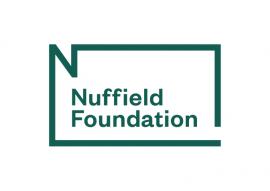- View more resources from this publisher
 Nuffield Foundation
Nuffield Foundation - View more resources from this publisher
 Collins Educational
Collins Educational
Nuffield Junior Science
The Nuffield Junior Science project was part of the Nuffield Foundation Science Teaching Project in the 1960s. In the publications, the project team suggested topics and methods to teachers interested in the contribution which science can make to the education of younger boys and girls.
In all publications the authors included this quotation from John Dewey:
“Children are people. They grow into tomorrow only as they live today.”
Aims and objectives
The overall aim was to produce children who are keenly observant, questioning, able to devise means of getting answers to their questions, are rigorous in their work and can communicate.
A key objective of the project was that children should have the widest possible range of practical experiences. It was seen as vital that children should handle materials, and hear, smell and taste them where practicable. This first-hand experience was considered enough to be the basis for the formation of concepts.
Approach
The project paid little attention to a more systematic formation of concepts, claiming that not enough was known about how and what concepts were formed by children. What children investigated was regarded as less important than how they investigated it. Thus the content encountered by children was spread widely and thinly, rather than being considered in appropriate depth.
Context
At the time of the project, a child-centred, ‘progressive’, approach to primary education was gaining strength. This approach was a reaction to strictures imposed by the 11+ examination, which was revoked in 1966, and the implementation of the active learning advocated by the followers of Piaget and later to be firmly endorsed by the Plowden Report in 1967. The Nuffield project’s ideas reflected the ideas of contemporary progressive primary education, particularly in infants’ classes.
Resources
Filter
Teacher's Guide 1 for Nuffield Junior Science gives the educational philosophy behind the project and how this applies in the classroom. Teacher's Guide 2 provides examples in the form of extended cases studies of work completed in classrooms with children aged 5 to 11.
The Apparatus guide collects together a...
The Nuffield Junior Science Project published three background booklets to supplement the information in the Teacher’s Guides.
The three readers were an attempt to help fulfil the need that teachers feel for greater background knowledge of subject matter. In the three books, the project team set out to give...





